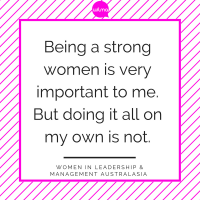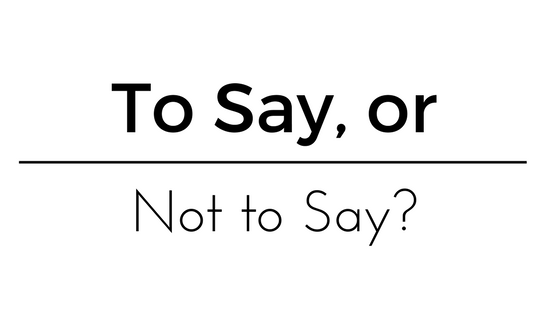If you are a quiet woman longing to speak up, this will confirm your worst fears.
When women talk more than men in meetings, there is instant backlash. When women behave the way men behave at work, there is instant backlash. And whether the women work in politics or in business, women are treated harshly for behaviour which is praised in men.
Think back to the last meeting you were in. How did the chair of the meeting behave? Have you ever timed who dominated the conversation?
Have you ever been in a meeting where the chair just talks the entire time, calls on men to answer questions and then interrupts women who have the temerity to speak up? Or is unspeakably rude and no-one has the guts to reprimand him?
It’s not your imagination. It’s real and the research proves it.
And here’s another killer. The way women are described in their performance reviews is nothing short of disgraceful. We are abrasive and told to pay attention to our tone. Men, instead, are offered the suggestions for additional skills.
To the research: a new study from the University of Sydney shows precisely what happened in our minds after former Prime Minister Julia Gillard was dumped by her party. It should frighten all of us.
Those of us who believe in traditional role models were totally put off entering into politics because of what happened to Gillard. What drove that response was thinking about the way others react when women lead. Traditional men responded to Gillard by having a greater belief in their own leadership capacity. In other words, they became ever more confident after seeing what happened to the first female prime minister.
Christopher Hunt, the lead researcher in the study and a psychologist at the University of Sydney, said: “Traditional women were likely to feel more fear.
“Gillard’s example provoked a defensive reporting of leadership capability – consistent with research showing that women who succeed in traditionally male domains are often perceived to be threatening.”
Yes, when we succeed we terrify men. And then the backlash begins.
US research across three studies shows that women who speak up in meetings are more negatively rated by others at those meetings. Victoria Brescoll, a professor in the school of management at Yale, also did research into the way politicians operated and how they were perceived.
When she looked at which US senators spoke more, it was senior men. But being a senior woman senator was not linked to the length of speaking time. Then Brescoll checked out why women spoke less – turns out that women worry about backlash so choose to speak less. And her third study? She surveyed whether the fear of backlash was justified. Briefly, the answer is yes.
She wrote: “A female CEO who talked disproportionately longer than others was rated as significantly less competent and less suitable for leadership than a male CEO who was reported as speaking for the same amount.”
Read her 2008 research if you really want to be angry. Yes, angry women CEOs and angry women trainees were rated lower in performance than angry men. When men were angry, it was always because of external circumstances.
Why were those women angry? “She is an angry person.” Or, “she is out of control“. No wonder we lose out at work.
Rae Cooper, an associate professor in the University of Sydney’s Business School, says:
“We need to reframe the ways leaders behave in organisations . . . we have deeply embedded practices that are highly gendered,”.
She believes all organisations need to think of ways to interrupt the bias – that might be anonymous contributions for new ideas in the company or it might be ensuring that women speak equally at meetings. Chairs need to lead not dominate.
“What kind of bias interrupter can you put in place to make some changes?” asks Cooper.
But underlying what happens in public is this other terrifying thing that happens to women at work. Our performance reviews.
Kieran Snyder, founder and CEO of Textio and with a PhD in linguistics and cognitive science, had a conversation with an engineering manager who was preparing two performance reviews. One employee, the bloke, was smart, great to work with, but needed a little more patience. The woman? Talented but abrasive. http://fortune.com/2014/08/26/performance-review-gender-bias/
She decided to recruit people to send her their performance reviews. When she analysed those reviews, she found rampant personality criticism in the reviews of women workers – in 71 reviews out of 94 critical reviews. And men? That kind of criticism appeared just twice in the 83 critical reviews of men.
The results were so marked that after she published in Fortune, she was swamped with companies who wanted her to analyse their performance reviews. Snyder says the results didn’t surprise her – until she discovered that it didn’t matter what the gender of the reviewer was.
“Male and female managers showed the same patterns . . . that surprised me,” she said.
Cooper of the University of Sydney says the culture won’t change by itself – companies need to start thinking beyond equality and diversity strategy and looking at mainline management practice in both performance and reward.
In the meantime, take a stopwatch to your next meeting. And if your manager describes you as abrasive, send him or her this story. I plan to do just that.
This article was originally published on Daily Life 19th January. Read the original article here.









Leave A Comment